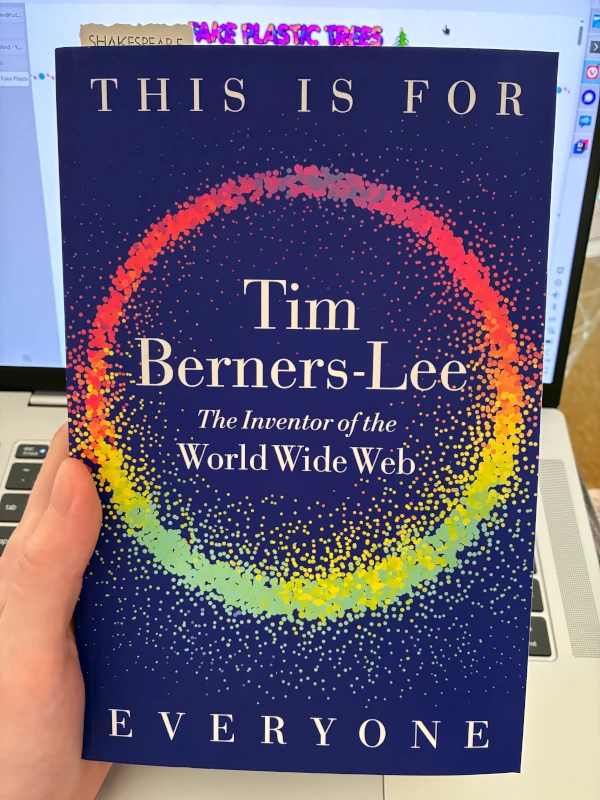This Is For Everyone
I didn't know much about Tim Berners-Lee, other than that he invented the World Wide Web. Since my journey with computers started in the late 90s, when his creation had already exploded, it felt to me like something that had always been there. Besides, he wasn't exactly a household name. Thus, I wasn't particularly excited when I heard that Tim had published a book, but I made a mental note nonetheless. Good reviews from both the press and readers convinced me to order it.
The book is fantastic! He is very good at expressing his thoughts, and the text is clear and easy to understand. Tim goes from his childhood to the present day and touches on a lot of topics. Yet he never goes too deep into little details that might be excessive for a reader today, nor does he say too little - it's a well-balanced book.
I learned some cool facts, like that the web was programmed on a NeXT computer, which was created by Steve Jobs when he was ousted from Apple in the 80s. Reading about the company today, it's easy to conclude that it wasn't exactly prosperous, and he eventually sold it back to Apple - paving the way for his comeback. I had no idea that the first web server and the first web browser were developed on one of those machines at CERN. Fascinating!
Tim didn't just invent the World Wide Web. Until recently, he was a director of the W3C, and was actively involved in other projects and initatives. Not many people come up with great ideas, even fewer can actually implement and commit to them. In this regard, he reminds me of Linus Torvalds - they are both capable individuals who changed the world.
I don't share his optimism about AI, but I agree that polarization is harmful. AI has a lot of potential, and viewing it as an absolute evil is lopsided. We see a lot of bad applications of LLMs these days. However, it's important to realize that people make decisions such as integrating it with Paint and Notepad, firing human employees to replace them with ChatGPT, building huge data centers that harm the environment, creating pull-requests with poorly written code in open-source projects, taking screenshots of everything you're doing on Windows - and so on.
If we want to make sure this technology serves people, completely disregarding AI won't help. That said, it isn't hard to see why so many individuals, especially in the US, feel disempowered these days. Tim has been working with government organizations on various web-related projects for decades, perhaps he sees more opportunities than most of us.
In any case, I highly recommend "This Is for Everyone: The Unfinished Story of the World Wide Web". It was a pleasure to read.
